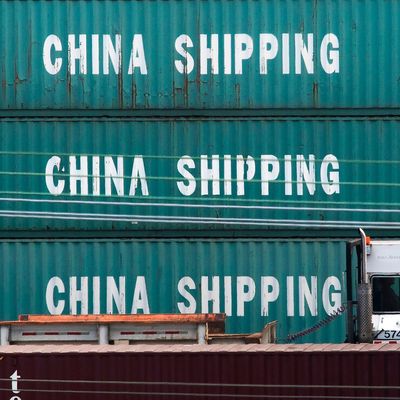
On Thursday, The Wall Street Journal ran an op-ed column by Robert Wetherbee, the CEO of specialty-metals producer Allegheny Technologies, under the amusing headline “I Support Trump’s Tariffs But Need an Exemption.”
As Ramesh Ponnuru writes, this request sounds very silly at first blush but is not “self-contradictory or in principle absurd.” The point of tariffs is supposed to be to foster U.S. production and employment in the industries protected by the tariff. But if a product isn’t made in the U.S. at all and still won’t be with the tariff in place, all the tariff does is raise costs for American businesses and consumers who need to buy the product. Wetherbee contends that this is the case for a specific material Allegheny needs to buy — nickel-bearing stainless-steel slabs — and that tariffs have driven the slab prices so high he’ll have to close a money-losing plant if he doesn’t get an exemption.
To be clear, I’m not saying Wetherbee ultimately has a good point. While some tariffs look worse from a job-creation perspective than others, even the metal tariffs that would be called successful by Wetherbee’s standard are still damaging the economy and reducing employment. There’s no need for special exceptions; the entire regime of steel and aluminum tariffs should just be junked.
All tariffs create winners and losers. When a tariff works as it’s supposed to, some American firms do enjoy its protection. The tariff makes imported goods more expensive, which means domestic producers can sell more units at a higher price to their domestic customers. But other companies are those customers, or some companies may find their best option is still to buy imported goods, whose cost now includes the tariff.
So huge numbers of companies are in the same position as Allegheny Technologies — paying more than they want for the materials they need to do business — not because the tariffs are malfunctioning but because they are working as intended. And that’s just our own tariffs. Exporting companies stand to lose business when other countries impose retaliatory tariffs in response to ours. In its quarterly filings with the SEC, Allegheny lists trade-war escalation and retaliatory tariffs that could hurt exports as risks to its business outlook.
Overall, tariffs create more losers than winners. That’s why the stock market falls when the trade war escalates and rises when tensions calm. And it’s why economic forecasters at banks revise their forecasts up or down with the state of Trump’s trade policy. At a macroeconomic level, these effects have not been large — most of the economy is the service sector, which has been little affected by the tariffs; a lot of trade is domestic or is in goods the tariffs don’t apply to; and other positive factors have been simultaneously boosting the economy — but the tariffs have been net-negative, and where that negative effect shows up in the real world is in events like the plant closing that Wetherbee is threatening if he doesn’t get tariff relief.
This is why Wetherbee’s own negative tariff experience should be leading him to rethink his support for tariffs rather than seeking narrow exemptions. Wetherbee says metal tariffs have been good for the domestic steel industry on the whole. But they’re bad for industries that consume steel, like automaking and construction. Those industries count too: They have workers and customers and owners and CEOs who are bearing the cost of those tariffs and deserve relief. But they won’t get it unless the metal tariffs are dropped altogether.
Of course, I realize Wetherbee is not really engaged in policy analysis. He’s the CEO and his job is to get the best deal for Allegheny Technologies, not for the whole American economy. The president is a protectionist who will never be convinced by yet another free-trade op-ed in the Journal, but he might take notice of one that extensively kisses his ass (“President Trump’s economic policies led my company to reopen an idled steel plant”) without asking him to make a major policy departure (“Mr. Trump imposed a 25 percent tax on imported steel. I supported that intervention, and I still do.”) As flattery and special pleading, this op-ed could work. But let’s be honest: That’s what it is.





























